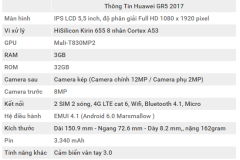Washington, D.C., UNITED STATES, March 17, 2025 (GLOBE NEWSWIRE) -- Global Fishing Watch today released its 2024 annual report, showcasing a year of bold strides and critical breakthroughs in driving transparent and equitable ocean governance — from undertaking pioneering research on hidden human activity at sea and catalyzing policy change at the United Nations to joining forces with governments worldwide to advance their ocean management strategies.
Reflecting the growing demand for technological solutions in ocean governance, the report highlights a significant surge in the use of Global Fishing Watch’s tools with 11,000 new registered map users in 2024 — a 50 percent increase from the previous year. The past year also saw major strides across key initiatives, with around 900,000 vessels tracked on the organization’s flagship map, 11 million gigabytes of satellite imagery analyzed and nearly 1,500 research citations as Global Fishing Watch deepened its collaborations with governments and the research community to shape policy and advance knowledge about the ocean.
“Technology remains at the heart of our work, but it’s essential that the tools we create are in the hands of those who need them most,” said Global Fishing Watch chief executive officer, Tony Long, noting that in 2025 the international organization would be “even more dedicated to building partnerships with countries, agencies and civil society, and to influencing policies and practices at national and international levels.”
“Global Fishing Watch is advancing a more accountable and sustainable future for the world’s ocean. Together, we can use technology and transparency to drive better governance and safeguard marine resources,” he added.
A new era of ocean governance
Among the driving factors behind Global Fishing Watch’s recent successes, the annual report points to a flurry of achievements across the organization’s numerous workstreams, from expanded access to open-source tools and deepened partnerships with governments and multilateral organizations to innovative research that has reshaped the conversation on ocean governance and fisheries management.
In early 2024, a groundbreaking study led by Global Fishing Watch and published in the journal Nature produced the first global map of large-vessel traffic and offshore infrastructure, revealing an unprecedented view of previously unseen industrial ocean use. The study, which allows governments, scientists and civil society to better understand the complex industrial workspace that makes up our ocean, can be used to identify hotspots of potential illegal activity, determine where industrial fishing vessels may be encroaching on artisanal fishing grounds and visualize vessel traffic. Moreover, it can assist stakeholders in the fight against climate change as the mapping of all vessel traffic will improve estimates of greenhouse gas emissions at sea.
At the same time, Global Fishing Watch registered additional accomplishments through its expanding portfolio of government collaborations as it signed a swathe of partnership agreements with the Governments of Greece and Panama as well as the West African Sub-Regional Fisheries Commission and the Gulf of Guinea Regional Fisheries Commission. According to Long, the partnerships will help inform decision-makers and further bolster global efforts to strengthen fisheries management.
“Our growing network of partners reflects a rising recognition among governments and multilateral institutions of Global Fishing Watch’s role in advancing transparent and effective ocean governance,” Long stated. “With collaboration, political commitment and open data, we can drive real impact and create lasting change to ensure our ocean is healthy, productive and resilient.”
From climate action to biodiversity
The past year also highlighted the broadening application of Global Fishing Watch tools beyond fisheries management, including in the climate and biodiversity spaces.
In late November 2024, a collaboration with the University of California, Santa Barbara and Climate TRACE was unveiled during the annual United Nations Climate Change Conference of Parties, or COP29, in Baku, Azerbaijan. Former United States Vice President Al Gore presented the integration of Global Fishing Watch’s unique dataset into Climate TRACE’s platform which seeks to map and estimate the emissions of all ocean-faring industrial vessels. Speaking to Climate TRACE earlier in the year, Global Fishing Watch Chief Scientist David Kroodsma celebrated the partnership, noting that access to Global Fishing Watch data would open up “a powerful new understanding of vessel emissions and, in turn, inform how we design our policies to reduce them.”
In addition, a 2024 study led by the University of Washington and using Global Fishing Watch data made a breakthrough discovery in the biodiversity and marine protection space revealing that fewer than 7 percent of global hotspots for whale and ship collisions have protection measures in place. The study, which was published in Science and received prominent coverage in global media, emphasized the urgent need for greater oversight of waterways that overlap with whale migration or feeding areas and underlined the increasing potential of Global Fishing Watch tools in protecting marine life and environments.
Similarly, a partnership between Global Fishing Watch and the Government of Albania ramped up efforts to address the overfishing crisis in the Mediterranean, where three-quarters of fish stocks are overfished, threatening the region’s unique biodiversity and the communities that have relied on the sea’s marine resources for generations. Through the collaboration, Global Fishing Watch created a comprehensive analysis of fishing activity in the Otranto Channel, shedding light on risks posed to vulnerable marine ecosystems, like deep-water corals, and prompting the creation of the Otranto Channel fisheries restricted area, which will keep the area’s fisheries sustainable and protect local marine biodiversity.
2025: a year of “big ambitions”
Global Fishing Watch’s 2024 annual report spotlights a pivotal year in the organization’s mission to drive ocean governance through transparency and the innovative use of technology and global collaboration. But the report also points ahead to a new year of ambitious targets, as the organization intensifies efforts to promote vessel tracking policies at international fora such as the 10th Our Ocean Conference in Busan, Republic of Korea, and at the U.N. Ocean Conference, to be held in Nice, France.
Indeed, Global Fishing Watch this year will continue its efforts in advocating for an international vessel tracking agreement that will require fishing vessels operating outside of their flag State’s waters to be publicly tracked and for that information to be shared beyond just governments. This agreement would provide authorities with a clear picture of human activity at sea and empower them to protect the ocean and sustainably manage its resources.
Moreover, the organization will further advance its efforts to map all human activity at sea through progress under the open ocean project as Global Fishing Watch continues to harness innovative technology and vast amounts of satellite data to reveal the unseen, empowering partners and other stakeholders in advancing ocean management.
“With demand for our unique tools continuing to grow, Global Fishing Watch remains committed to expanding partnerships, advancing research, and delivering actionable data that supports sustainable ocean governance so that transparency becomes the rule rather than the exception,” Tony Long concluded. “As we look ahead to a year of big ambitions, Global Fishing Watch will build on the momentum created in 2024, ensuring that open data and innovative technology are harnessed to protect marine ecosystems, combat illegal fishing, and foster a healthier ocean for future generations.”
# # #
Attachment
- PRESS RELEASE

Andrew Zaganelli Giacalone Global Fishing Watch +49 0162 6570109 andrew.giacalone@globalfishingwatch.org












